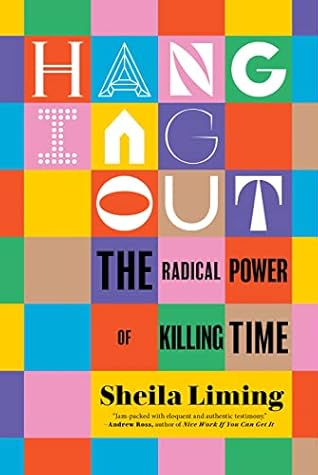More on this book
Community
Kindle Notes & Highlights
Read between
August 23 - August 28, 2023
Hanging out is about daring to do nothing much and, even more than that, about daring to do it in the company of others.
it’s about blocking out time and dedicating it to the work of interacting with other people, whoever they might be.
Why did hanging out feel so hard at times if, in reality, it could be that easy? What forces prevented it from feeling that way all the time?
Digital devices and technologies make that other kind of hanging out easier, but they also strip it of the experiences and particularities of place. What gets lost, along with those particularities, are deeper shades of connection, intimacy, and meaning.
the human body, bred to function as a social animal, “read[s] isolation, and often even the threat of isolation, as emergency.”
a person can come to know the serenity of effortless inclusion when given mere proximity to certain, affirming forms of social experience.
we are suspicious of those who hang out when they ought to be working and producing, or suspicious of activities that do not resemble our personal understandings of work.
The parties themselves, they stopped being about having fun and started being primarily about looking like you were having fun—about advertising your own capacity to have fun.
Sometimes a party is something we want, long for, and look forward to. But sometimes it can feel like something else: a duty, an obligation, a hostage situation,
it is a very terrifying thing to have to try.
They know what it is to weigh a minor ethical infraction against the prospect of a few hours’ worth of inclusion.
A person is never so much themselves as when they are alone in a hotel room.
We seek to discover who we are by locating the boundaries of what we are willing to be.
improvisation, he says, is really only made possible thanks to preparation and training.
There are two conditions for which a feeling of satiation is always temporary for us humans: fellowship and food.
Third places exist to span the divide between rich and poor, between the backyard playset class and the playing-in-the-street class, and to make the experience of being around different kinds of people feel habitual, meaning both more likely and less threatening.
“If time, so fleeting, must like humans die, let it be filled with good food and good talk,”
And, most importantly, we don’t have anything else: no screens to divert our attention when the conversation lags, nowhere else to be, no concerns apart from sore muscles and maybe the search for ground that is flat enough to accommodate a tent.
For “When shall we live, if not now?” asks Fisher.
When shall we seize and take that time for ourselves, if not in the short space of time that is to be found in a day—in this day, perhaps?
It is the seizing of a moment that you hope will come again, but which is really only here right now, that proves to be the true source of satiation.
At thirty-one years old, I had reached, in a somewhat delayed fashion, the age of loneliness, which is another way of saying that I had reached adulthood itself.
friendship requires time and, in a world where time is judged to be in short supply, time-consuming ventures like friendship become subject to the pressures of market-style logic. Competition then ensues, as a means of weeding out unworthy elements and guiding the consumer toward the safest investment or choice. Marketing tactics are then used to persuade the customer into thinking that one choice is better, or more appropriate for them, than another.
Television, especially reality television, lets us eavesdrop on others’ efforts to hang out and experience leisure.
In order to safeguard what little time we have, and while we are working on stealing the rest back, we must develop an awareness of the boundaries that exist to protect it. We have to fortify those boundaries and help to make them more visible and substantial, able to withstand new forms of attack.


